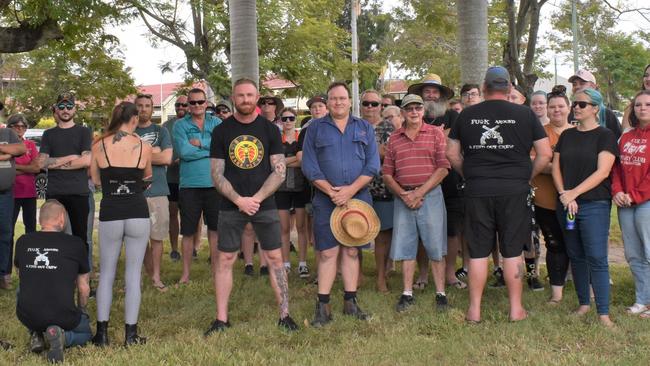Vigilante cash offers could lead to legal trouble, expert says
As tensions rise over youth crime, a high-profile criminal lawyer warns that encouraging vigilante action can lead to legal trouble and explains residents’ rights if a home is broken into.
Police & Courts
Don't miss out on the headlines from Police & Courts. Followed categories will be added to My News.
A high-profile criminal lawyer has warned against handing over the identities of suspected criminals to would-be vigilantes, saying it could land you in legal hot water.
Queenslanders frustrated by the state’s youth crime crisis are using social media in an attempt to find the person who stole their car or broke into their home rather than wait for police to do it.
But solicitor Bill Potts said unless you genuinely believe the person was planning to provide the information to police, you could end up facing charges if you helped someone commit a crime.
“Section seven of the criminal code says it’s an offence to aid, abet, assist, enable or procure somebody else to commit an offence, including home invasions or violence,” he said.
“But if you are providing information so that they can go to the police, there is no issue.
“If it’s implicit in the request that this person is going to take the law into their own hands, yes, you can find yourself charged.”

It comes as an angry mob of around 100 people walked the streets of Rockhampton on Sunday morning, visiting homes where they believed young criminals were living.
The rally was organised by former One Nation candidate and Muay Thai gym owner Torin O’Brien following a frightening break-in at his sister’s house.
Police were called and negotiated with Mr O’Brien, who eventually told people to go home.
A “move on” direction had to be made for the remaining group members who refused to leave.
In a Facebook post published before the community rally, Mr O’Brien offered $5000 for the addresses of those involved in the home invasion at his sister’s house.
“If one of the guys/kids that robbed a place in Wandal last night wants to rat on their mates … $5k cash (and) all I want is the addresses of the others,” he wrote.
“You get $5k and I leave you alone.
“I won’t leave this alone, trust me, you’re better off with the $5k than dealing with me. Take the cash before one of your mates does.”
In another recent incident, a man offered a “large sum of cash” for the identities of the people who rammed his car and shot his daughter in the leg in a terrifying road rage incident.
There is no suggestion either of these men contravened any laws.

“People should not take the law into their own hands,” Mr Potts said.
“The reason for that is quite clear - we have a professional police force that is able to deal with matters.
“While public emotions are inflamed, sometimes people, by taking the law into their own hands, end up not only harming other people and becoming criminals themselves but may themselves end up severely wounded.
“So if you’ve got to protest, certainly do so - but you don’t do that by essentially a lynch mob mentality, invading people’s privacy and the like.
“It’s un-Australian (and) I strongly recommend people don’t do it.
“If they want to protest, well, certainly, get a permit and protest where you like.
“To go to someone’s house … merely means they might be placed in fear, particularly if there’s a mob.”
PeakCare Queensland chief executive Tom Allsop urged both sides of government to publicly condemn vigilante groups and mobs.
“While heightened levels of public anger and fear are understandable, the targeting of children in state care by vigilante groups and mobs is not the answer,” he said.
“Only a small minority of children in residential care have had contact with the youth justice system.
“We have children in these homes with significant disabilities. Children who are in residential care because it means sibling groups can stay together. Children who are there because the system is under significant strain and there is nowhere else safe for them to go.”
What rights do Queenslanders have to defend themselves if confronted in their home?
Mr Potts said you have a right to defend yourself, but it must be reasonable in the circumstances.
“That includes for example, the time of day, (whether it’s) at night, whether people are armed, the number of people, whether they demonstrate a level of violence themselves, whether they are calling for violence,” he said.
“People are entitled to defend themselves, not only against actual assaults, but also against what they apprehend may be assaults.
“You don’t have to wait around to get shot or stabbed yourself. You can, in fact, defend yourself and your premises.
“But as to what is reasonable is always a question of fact and always depends on the circumstances.”


